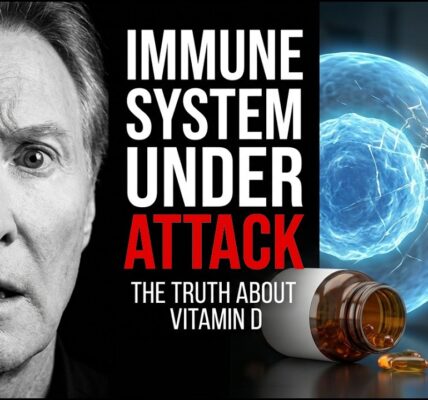Recent advances in neuroscience and nutritional science have begun to illuminate the critical role of diet in promoting healthy brain aging. A groundbreaking study from the University of Nebraska–Lincoln’s Center for Brain, Biology and Behavior and the University of Illinois at Urbana-Champaign has made significant strides in this area, revealing how specific nutrients can influence the trajectory of brain aging.
The Study and Its Findings
The research, led by Aron Barbey and his team, including Jisheng Wu and Christopher Zwilling, was published in Nature Publishing Group Aging. It involved 100 cognitively healthy participants aged 65-75 who underwent extensive testing, including questionnaires, body composition measurements, blood plasma analysis, cognitive assessments, and MRI scans. The analysis uncovered two distinct types of brain aging among the participants: accelerated and delayed.
Key Findings:
- Nutrient Biomarkers: The study identified a specific nutrient profile associated with delayed brain aging. This profile included fatty acids (vaccenic, gondoic, alpha-linolenic, eicosapentaenoic, eicosadienoic, and lignoceric acids), antioxidants and carotenoids (cis-lutein, trans-lutein, and zeaxanthin), two forms of vitamin E, and choline. These nutrients are commonly found in the Mediterranean diet, which has been previously linked to healthy brain aging.
- Brain Aging Phenotypes: Participants were classified into two groups based on their brain aging phenotypes. Those with delayed brain aging exhibited larger brain volumes, better white matter integrity, higher concentrations of brain metabolites, and improved functional connectivity compared to those with accelerated brain aging.
- Cognitive Performance: The cognitive assessments revealed that individuals with delayed brain aging outperformed those with accelerated brain aging across all measures of intelligence, executive function, and memory.
Implications for Nutritional Interventions
The findings from this study underscore the importance of diet and nutrition in maintaining brain health and cognitive function as we age. The identified nutrient profile offers promising targets for nutritional interventions aimed at promoting healthy brain aging. Here are some key nutrients and their sources:
- Fatty Acids:
- EPA and ALA: Found in fish, flaxseed, hemp seed, olive oil, and chia seeds, these fatty acids reduce inflammation and support brain health.
- Vaccenic and Gondoic Acids: Present in dairy products and certain oils, these MUFAs have antioxidant properties and support brain integrity.
- Lignoceric Acid: Found in peanuts and macadamia nuts, this long-chain saturated fatty acid is associated with reduced cognitive decline.
- Antioxidants and Carotenoids:
- Lutein and Zeaxanthin: Found in spinach, kale, corn, and bell peppers, these carotenoids accumulate in the brain and retina, providing antioxidant protection.
- Vitamin E: Present in nuts, seeds, and green leafy vegetables, vitamin E supports cognitive performance and brain health through its antioxidant properties.
- Choline: Essential for brain function, choline is found in meat, poultry, fish, eggs, and cruciferous vegetables. It supports the structural integrity of brain cells and neurotransmission.
Future Research and Potential Therapies
The study’s comprehensive approach, integrating nutrition, cognitive function, and brain imaging, sets the stage for future research to develop targeted nutritional therapies. Randomized controlled trials are necessary to isolate specific nutrients and determine their effects on brain health and cognitive performance. Such interventions could potentially slow down or even reverse aspects of brain aging.
Moreover, the findings align with broader scientific efforts to understand the impact of nutrition on brain health. The National Institutes of Health’s 10-year strategic plan to accelerate nutrition research highlights the importance of studies like this one in uncovering the pathways through which diet influences brain function.
Conclusion
As we continue to unravel the complex relationship between diet and brain health, it becomes increasingly clear that nutrition plays a pivotal role in cognitive aging. The nutrient profile identified in this study provides a valuable blueprint for dietary interventions aimed at promoting healthy brain aging. By incorporating these nutrients into our diets, we can potentially enhance our cognitive function and overall brain health, leading to a healthier, more vibrant life as we age.
In the realm of preventative and integrative medicine, these findings reinforce the critical importance of a balanced, nutrient-rich diet. As we move forward, continued research and clinical trials will be essential in translating these insights into practical dietary recommendations and therapies that can benefit individuals worldwide.
Correlating Ingredients and Supporting Benefits
- EPA and DHA in Divine Health Krill Oil and Alaskan Salmon Omega-3:
- Essential fatty acids that support brain health.
- Promote cognitive function.
- Alpha-Glycerophosphoryl Choline (GPC) in Divine Health Brain Zone Advanced and Brain Zone Focus:
- Crucial for neurotransmission.
- Supports brain cell integrity.
- Antioxidants like Vitamin E and Carotenoids in Brain Zone Basic and Divine Health Enhanced Multivitamin:
- Neutralize free radicals.
- Promote brain health.
- Phospholipids and Brain-Supportive Compounds:
- Found in various Brain Zone supplements.
- Includes ingredients like Lion’s Mane and Curcumin.
- Potentially enhance cognitive function and memory.
- Overall Potential Benefits:
- Reinforce the study’s conclusions about the benefits of a nutrient-rich diet.
- Offer a convenient way to incorporate key nutrients into one’s diet.
- Potentially support delayed brain aging and improved cognitive performance.
















